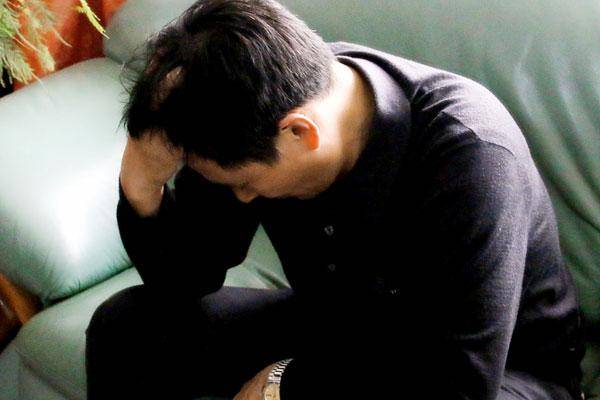For a long time, many people have thought that menopause is a physiological period specific to women because women’s menopause has a clear signal, which is menopause. Men do not have menstruation, nor do they go through menopause, so they are not associated with menopause.
However, menopause is not exclusive to women, and it is not marked by menopause. A woman’s menopause occurs during menopause, but not every menopause implies the arrival of menopause. From this perspective, men actually also experience a form of menopause.
In traditional Chinese medicine, men’s menopause is actually a special physiological state, or a point of transition from vitality to decline, and is one of the signs of aging, which men naturally experience as well.
Studies have shown that the age at which men experience menopause varies, with some at 60 years old, others at 50 years old, but over a third of men experience menopause between the ages of 40 and 70. Men should pay attention to some changes in their bodies by the age of 40 to cope with menopause.
The signs of male menopause start with sagging skin. Aging affects men mainly by muscle atrophy, which in turn causes the skin to become loose, as the fat cannot hold it together, resulting in more wrinkles on the face. In older individuals, the flesh on the belly may sag, and there may be signs of sagging skin on the neck.
There is a noticeable decrease in physical strength, feeling exhausted after regular physical activities, and shortness of breath. The typical manifestation of men entering menopause is a decline in physical strength, which is a sign of aging resulting from the decline in heart and lung function and applies to all men. The main manifestation is that performing the same tasks becomes noticeably more challenging than in youth. For instance, climbing three flights of stairs would lead to heavy panting.
Discomfort while sleeping at night, frequent sweating, and a flushed complexion. These are typical symptoms of menopause in women and also occur in men, being related to the decline in physiological functions. After the age of 40, men who do not exercise regularly find it hard to maintain all-around normal bodily functions, including having restless nights.
Most men experience insomnia after the age of 40, which is also a manifestation of menopause. Insomniac men may sweat more and have a flushed complexion. Some men’s insomnia is caused by excessive sweating and internal heat, waking them up feeling restless and unable to fall back asleep.
Experiencing increased urination at night and waking up multiple times during the night. The decline in the urinary system’s functionality is also one of the reasons why men may enter menopause earlier. Due to this functional decline, many men experience changes in their urinary frequency, with normal daytime urination but unusually frequent nighttime visits to the bathroom, significantly disrupting sleep.
Hunched back and inability to stand up straight. It is often said that people tend to hunch and shrink in height as they age, which is more pronounced in men. Due to lack of emphasis on proper care, men may not receive enough calcium replenishment, leading to accelerated bone loss after the age of 40, jeopardizing bone health without adequate calcium supplementation.
Compared to women, men are more likely to experience calcium loss during menopause, thereby compromising bone health, resulting in problems like bent backs and difficulty standing upright.
Men undergoing menopause also need more care and should understand how to safeguard their health. They should maintain an optimistic mindset, actively enrich their diets with nutrients like protein from meat, consume foods rich in vitamins to support normal bodily functions, and supplement minerals like calcium to protect bone health.


